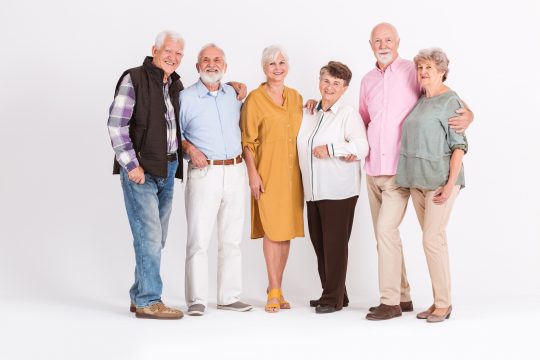
(Editorial Note: This article was posted March 12, 2021 as a press release on the AMAC.us website. It was written by AMAC Foundation board member John Grimaldi, and highlights the issue of mental stamina shown by America’s Seniors…especially as evidenced during the COVID-19 pandemic we’re still fighting our way through.
WASHINGTON, DC, MAR 12 — It’s not easy getting old. When times are bad they’re worse for the elderly and no better example is there than the times in which we’ve been living for the past twelve months or so—in the year of the COVID-19 pandemic. There’s no doubt that the older you are the more physically vulnerable you can be to the coronavirus, but there’s evidence that aging can also turn us into mentally tougher “old birds,” as the saying goes, according to Rebecca Weber, CEO of the Association of Mature American Citizens [AMAC].
There was concern across the board when the pandemic got started that there would be a “mental health crisis” among the older population due to COVID based restrictions on contact with friends and family. But according to an article in JAMA, the Journal of the American Medical Association, there is “evidence suggesting that, counter to expectation, older adults as a group may be more resilient to the anxiety, depression, and stress-related mental health disorders characteristic of younger populations during the initial phase of the COVID-19 pandemic.”
The article cites a study by the Centers for Disease Control that showed “933 participants aged 65 years or older reported significantly lower percentages of anxiety disorder (6.2%), depressive disorder (5.8%), or trauma- or stress-related disorder (TSRD) (9.2%) than participants in younger age groups.”
But that doesn’t mean seniors are not lonely, says Weber. “How can you not be lonely when interpersonal relationships are suddenly curtailed. But it appears that the older you get the better able you are to cope psychologically with loneliness.”
She notes that there’s even more evidence that we get stronger emotionally as we get older. The AMAC CEO cites a new study conducted by the Stanford Center on Longevity, for example. In it, Professor Laura Carstensen, says that “as people age, they’re more emotionally balanced and better able to solve highly emotional problems.”
According to Carstensen, “we surveyed a representative sample of 945 Americans between the ages of 18 and 76 years and assessed the frequency and intensity of a range of positive and negative emotions. We also assessed perceived risk of contagion and complications from the virus, as well as personality, health, and demographic characteristics. Age was associated with relatively greater emotional well-being both when analyses did and did not control for perceived risk and other covariates. The present findings extend previous research about age and emotion by demonstrating that older adults’ relatively better emotional well-being persists even in the face of prolonged stress.”
Meanwhile, Dr. Marcia Ory, a Texas A&M aging expert, put it this way: “older adults – despite their awareness of increased risk – are generally not reporting more feelings of anxiety, anger or stress than younger age groups [during the COVID crisis].”
Dr. Ory is the founding director of the Texas A&M Center of Population Health and Aging and notes that she has been “studying the impacts of COVID-19 with an interest in debunking myths and identifying unexpected positive consequences for our aging population.”
Subscribe
Sign Up for Our E-Newsletter!
Stay up-to-date on all of the topics you care about by subscribing to our quarterly newsletter emailed directly to your inbox!
SubscribeSubscribe
Sign Up for Our E-Newsletter!
Stay up-to-date on all of the topics you care about by subscribing to our quarterly newsletter emailed directly to your inbox!
Subscribe